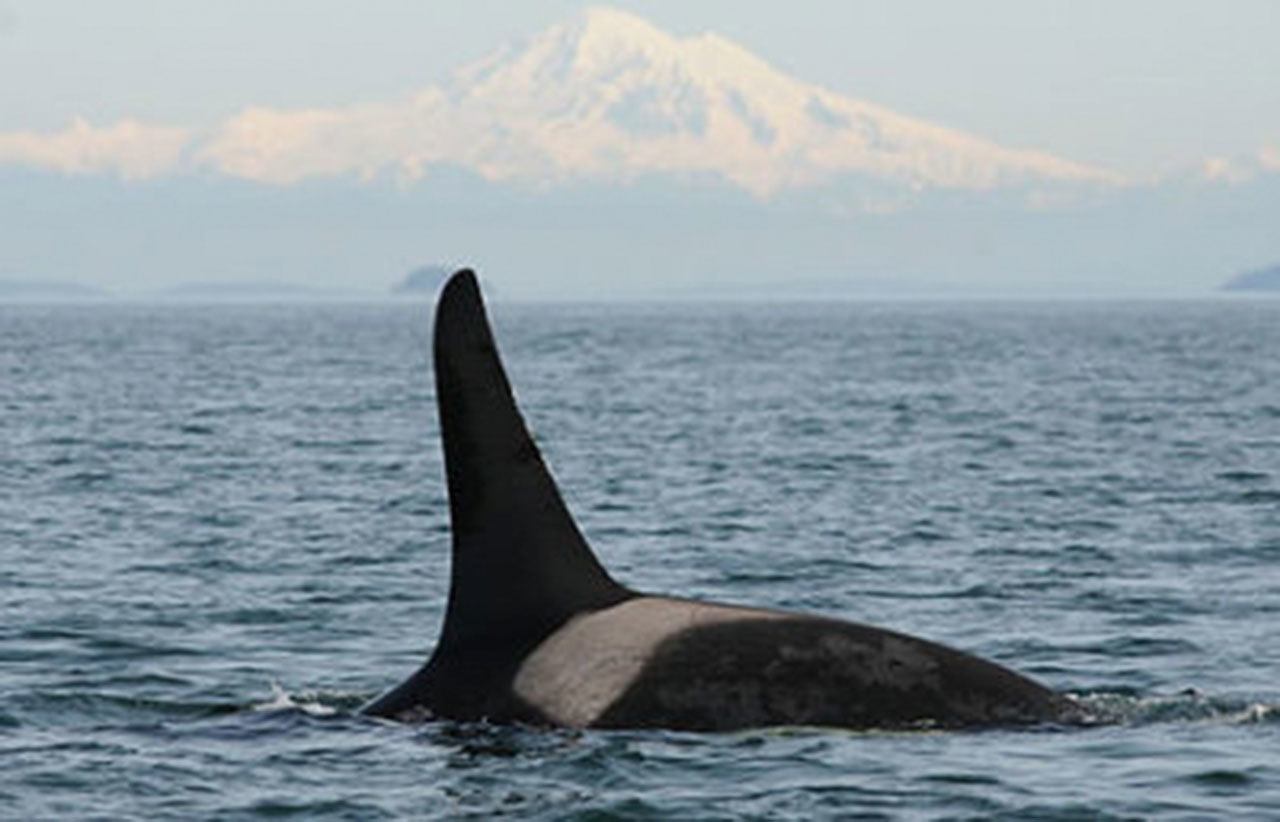By Joe Gaydos
SeaDoc Society
An 18-year-old southern resident killer whale (J34) was found dead on Dec. 20 and necropsied the following day by representatives of the Vancouver Aquarium, Department of Fisheries and Oceans, local Sechelt First Nation community members, marine mammal field technician Mike deRoos and veterinary pathologist Dr. Stephen Raverty. Initial examination suggests blunt force trauma as the cause of death, though more tests still need to be performed.
Just 11 days later, the Center for Whale Research declared J2, Granny, to be officially missing from the southern resident killer whale population. Last seen by the center on Oct. 12, 2016, J2 is presumed to be dead.
What do we know about why killer whales die? Why are some found and other are not? A SeaDoc paper published by Dr. Michelle Barbieri and co-authors in the journal Marine Mammalogy showed that despite being one of the best-studied marine mammal populations in the world, we only have a 1 in 5 chance of finding a southern resident killer whale that has died. The odds are even smaller for finding a dead Northern Resident killer whale (1 in 33). This tells us several important things.
Although sad, every stranded animal is a rare opportunity to learn as much as we can about these incredible animals. We were lucky J34 was found and reported by the Sechelt First Nation and fortunate that Dr. Raverty was able to perform the necropsy within 24 hours. We also are grateful that NOAA Fisheries (U.S.) and Fisheries and Oceans Canada have made it a priority to better understand disease and mortality in killer whales. The rarity with which we find dead killer whales also reminds us that we need to study live animals as well as stranded animals to understand their threats well enough to save them.
SeaDoc is working with collaborators throughout the killer whale research community to develop an individual, animal-based, health record-keeping system so that one day we can be tallying whales saved rather than whales lost.



